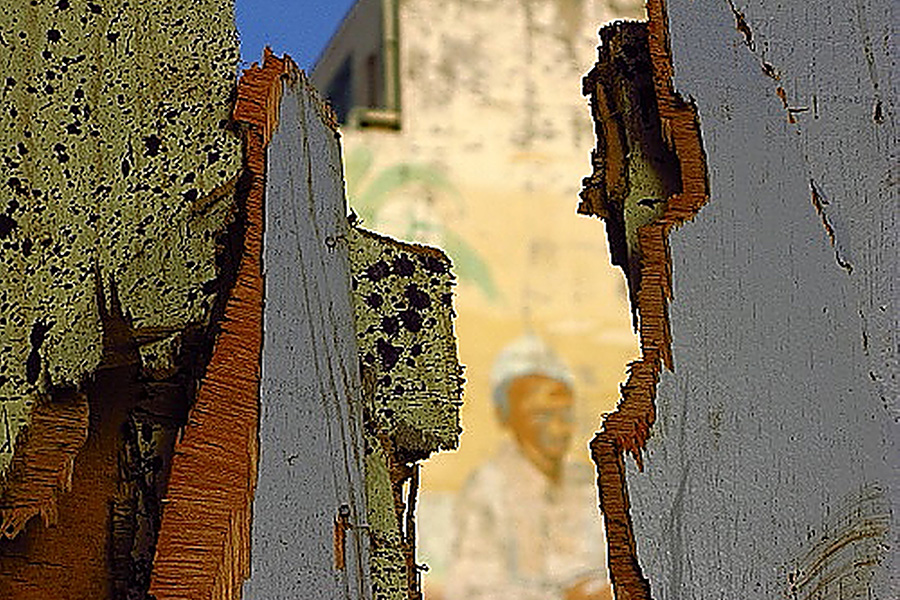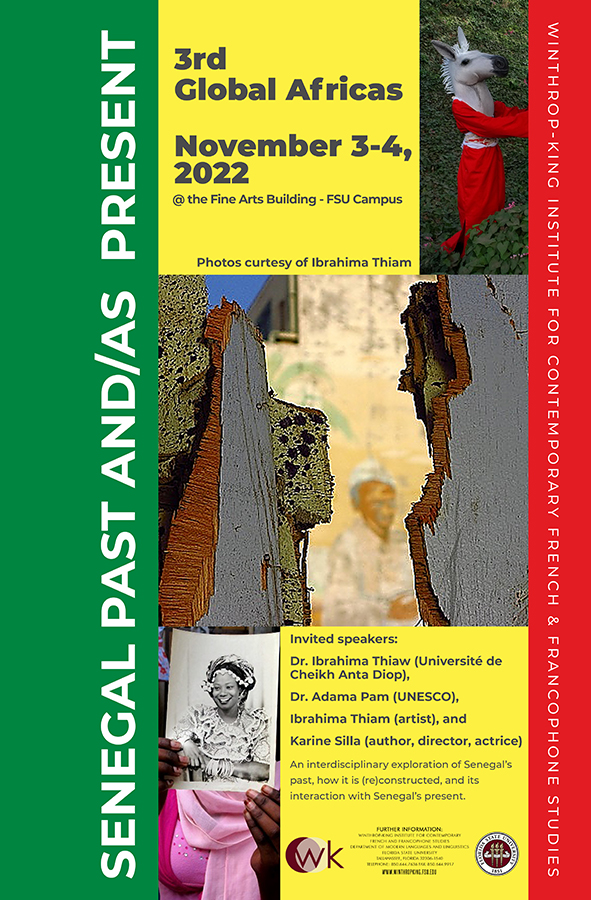
Florida State University's Winthrop-King Institute for Contemporary French and Francophone Studies will welcome French and Senegalese distinguished scholars and well-known artists for a two-day symposium examining the legacies and culture of Senegal.
"Senegal: Past and/as Present [Sénégal passé/present]" takes place Thursday, Nov. 3, and Friday, Nov. 4, at the FSU Museum of Fine Arts. The symposium will explore how centuries of French colonialism have shaped recent developments in the West African country.
 Speakers include author and director Karine Silla; Université de Cheikh Anta Diop professor Ibrahima Thiaw; photographer Ibrahima Thiam; and chief archivist Adama Pam of the United Nations Educational, Scientific and Cultural Organization (UNESCO). FSU's Department of Modern Languages and Linguistics and the Museum of Fine Arts are co-sponsors of the symposium, the third iteration in the Global Africas series.
Speakers include author and director Karine Silla; Université de Cheikh Anta Diop professor Ibrahima Thiaw; photographer Ibrahima Thiam; and chief archivist Adama Pam of the United Nations Educational, Scientific and Cultural Organization (UNESCO). FSU's Department of Modern Languages and Linguistics and the Museum of Fine Arts are co-sponsors of the symposium, the third iteration in the Global Africas series.
The event schedule includes a book reading, photography exhibition, networking lunch and two roundtable discussions with individuals who have dedicated their lives to studying Senegal's past and present. Symposium attendees will engage with various cultural texts and artwork originating from Senegal to determine the manifestations of historical events in West African present-day life.
"The interdisciplinary nature of the symposium explores the different ways in which cultural producers and researchers contribute to our understanding of the past," said Michelle Bumatay, series organizer and assistant professor of French at FSU. "Central to the work of all the speakers is the preservation and sharing of local and regional histories often overshadowed by official accounts of Senegal's history."
The Winthrop-King Institute for Contemporary French and Francophone Studies' Global Africas series works against a pervasive tendency to reduce Earth's second-largest continent to a single nation and explores the ways in which Africa's countries and people have always been globally interconnected.
The series examines the cultural, linguistic, political and historical realities of Francophone regions of Africa from a range of academic and artistic perspectives.
The events are free and open to the public, but advance registration is required via Eventbrite.






